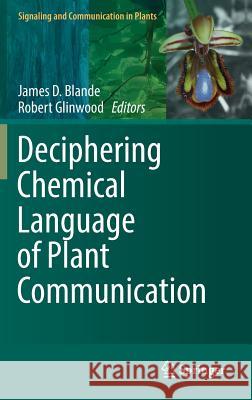Deciphering Chemical Language of Plant Communication » książka
Deciphering Chemical Language of Plant Communication
ISBN-13: 9783319334967 / Angielski / Twarda / 2016 / 326 str.
This book provides an overview of the intricacies of plant communication via volatile chemicals. Plants produce an extraordinarily vast array of chemicals, which provide community members with detailed information about the producer's identity, physiology and phenology. Volatile organic chemicals, either as individual compounds or complex chemical blends, are a communication medium operating between plants and any organism able to detect the compounds and respond. The ecological and evolutionary origins of particular interactions between plants and the greater community have been, and will continue to be, strenuously debated. However, it is clear that chemicals, and particularly volatile chemicals, constitute a medium akin to a linguistic tool. As well as possessing a rich chemical vocabulary, plants are known to detect and respond to chemical cues. These cues can originate from neighbouring plants, or other associated community members. This book begins with chapters on the complexity of chemical messages, provides a broad perspective on a range of ecological interactions mediated by volatile chemicals, and extends to cutting edge developments on the detection of chemicals by plants.











